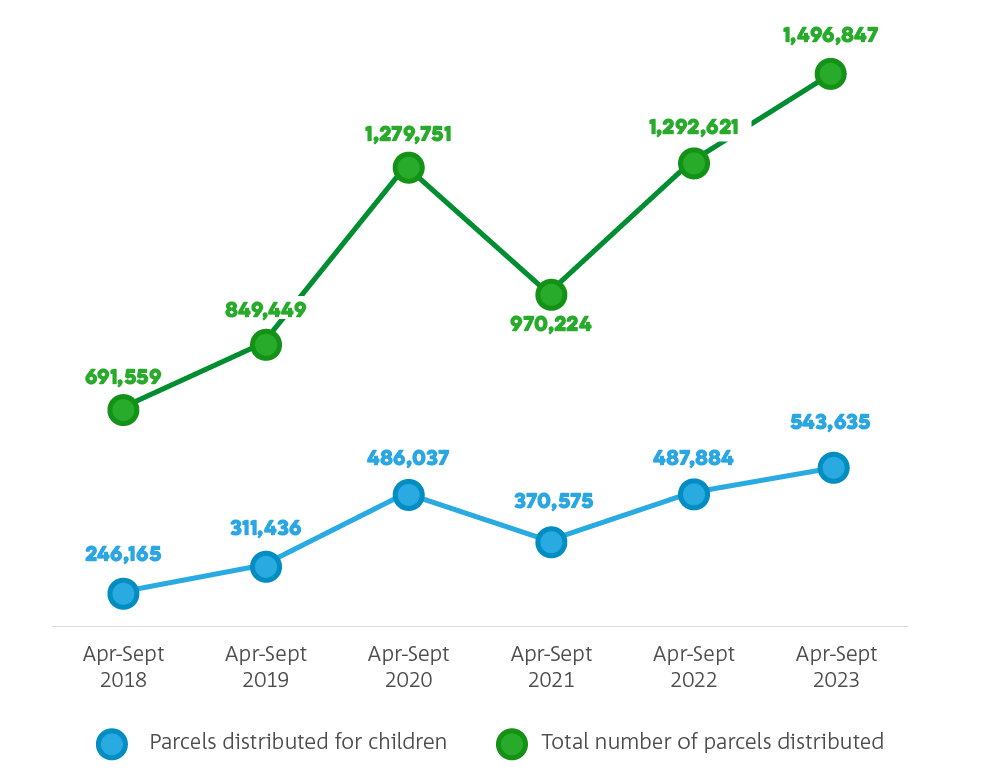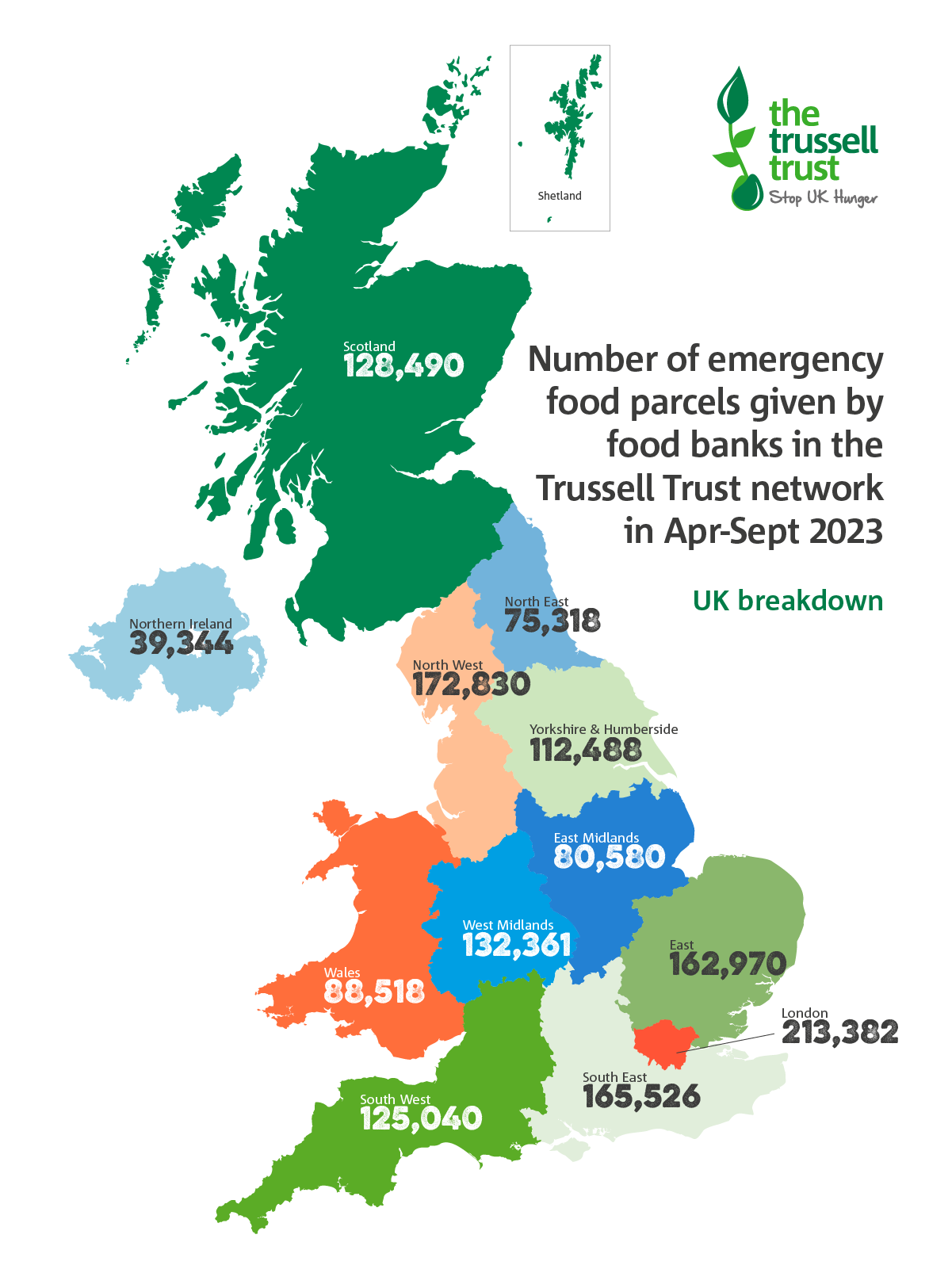Mid-Year Stats
Food banks in our UK-wide network distributed 1.5 million food parcels to people facing hardship between 1 April and 30 September 2023 – an increase of 16% compared to the same period in 2022.
More than half a million emergency parcels were distributed for children – an 11% increase compared to last year.
Over the last six months, 320,000 people have had to turn to food banks in the Trussell Trust network for the first time.
Sixty-five percent of all the parcels provided between April and September this year were for families with children.
Low incomes – especially from social security, debt, health conditions and issues with social security payments such as delays or sanctions – were the main reasons people were left with no option but to turn to a food bank for help.
We are deeply concerned about the alarming rise in the number of children needing our support. Last month, 633 of the food parcels we provided were for children. Day after day, people tell us they simply don’t have enough money to buy the basics.
Jess Holliday, Deputy CEO at Eastbourne Foodbank

Emma Revie – Chief Executive
“These statistics are extremely alarming. An increasing number of children are growing up in families facing hunger, forced to turn to food banks to survive. A generation is growing up believing that it’s normal to see a food bank in every community. This is not right.
“Rising hunger and hardship have devastating consequences for individuals and our communities, damage the nation’s health and hold back our economy. People in work, as well as people who cannot work, are increasingly being pushed into debt and forced to turn to a food bank to survive.
“That’s why the UK Government must build on its work to protect people from increasingly severe hardship and commit to putting an Essentials Guarantee into legislation, to embed in our social security system the widely supported principle that, at a minimum, Universal Credit should protect people from going without essentials.
“We recognise this change cannot happen overnight, which is why we are also calling on the Government to urgently confirm in the Autumn Statement that benefits will rise in line with inflation next April, and to reduce the burden of debt deductions which drive unacceptable levels of hardship.”
Sign our petition
We’re calling on UK political party leaders to support the introduction of an Essentials Guarantee to ensure that the basic rate of Universal Credit at least covers life’s essentials, such as food and bills.
What do these stats show?
Every year we release statistics about the number of emergency food parcels food banks in our network have provided to people. We release figures for the first six months of the financial year in November, and for the full financial year at the end of April. These figures cover 1 April to 30 September 2023 – for our latest annual figures, see our end of year stats.
Our statistics are a measure of volume rather than unique users, the available data indicates that most people are referred to a food bank in the Trussell Trust network once a year. The data is collected using an online system into which food banks enter data from each food bank voucher, and the number of emergency food supplies is recorded.
For example, if a family of three were referred to a food bank twice in one year, this would count as six supplies on the system because it would reflect six instances of a supply going to someone in the household. However, if a family of three were only referred to a food bank once, this would count as three supplies.
Figures from the Trussell Trust cannot be used to fully explain the scale of food bank use across the UK, because our figures relate to food banks in our network and not to the hundreds of independent food aid providers and community groups also providing emergency food, which have increased in number through the pandemic. There are more than 1,300 food bank centres in the Trussell Trust’s UK-wide network. The Independent Food Aid Network has identified at least 1,172 independent food banks, while there are also Salvation Army food banks as well as food banks run from schools and hospitals. There are also thousands of other food aid providers including soup kitchens and social supermarkets.
Read our full data briefing
Read the findings in Northern Ireland, Scotland and Wales
Read our methods note
Access breakdowns of the data to local authority level

